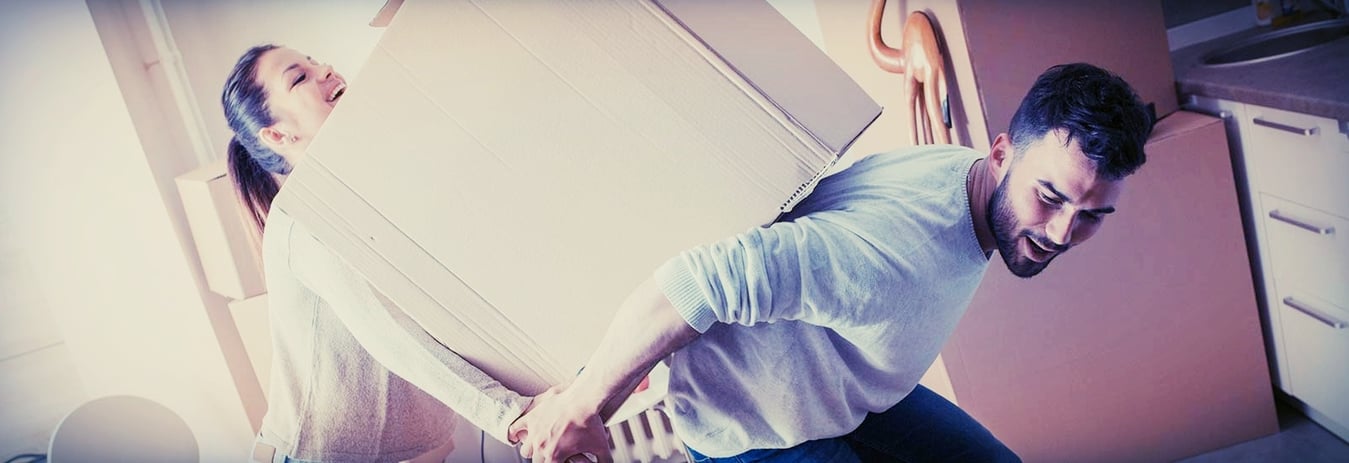Should You Pay Off Student Loans or Buy a House?
You know most good things don’t last forever. Right now, interest rates on mortgages still average below 4% on a 30-year fixed mortgage. Who knows how long will those historic lows last?
Maybe you’re debating whether to buy that dream home while the getting is good. But ... there is the matter of your student loans. Is it smarter to pay them off before taking on homeownership?
For sure, it’s not an easy call. Let’s talk about when student loans should be priority number one, and when it’s OK to go forth and shop for houses.
Red light: when you should wait
If any of the following sound like you, it might be a good idea to hold off on the house hunt.
Your debt-to-income ratio is too high
A debt-to-income ratio provides a good overall picture of where you stand financially.
Here’s how to come up with your debt-to-income ratio: add all your monthly debt payments (car payment, student loans, credit cards, etc.). Divide that by your gross monthly income – what you earn before taxes.
If your debt-to-income ratio is 36% or higher, that’s too high. Focus on paying down your student loans first.
Your credit score is not worth bragging about
Much as everyone likes to say a number is just a number, these three digits matter. If your credit score is below 660, you will need to pay down your student loans (and other debt) in order to make yourself attractive to a mortgage lender.
You’ll look good if you routinely make your payments in full, each month, on time. Such steps boost your credit score. No doubt, a higher score increases the odds you’ll get an interest rate that will put a smile on your face when you do eventually buy a house.
You can’t bankroll a 20% down payment
Can you jump the down payment hurdle?
If you can’t see where in the world you might come up with 20% of the house’s purchase price as a down payment, slow down.
It’s ideal to put up 20%, otherwise, you’ll have a higher interest mortgage. To add a bit more pain to the equation, if you can’t put down 20% you’ll also have to purchase
In a nutshell, PMI makes it possible for you to put down less than 20% of the purchase price. It’s a safety net of sorts for lenders, in case you default. You must pay PMI until you have enough equity in the house that the lender no longer considers you a high risk.
While PMI may be able to get you in a house faster, know that you’ll have to pay higher monthly mortgage payments for a while—likely the first several years you’re in the house.
You're not quite ready to settle down
What’s the likelihood that you may change jobs and move to a new area? Do you want flexibility in your living situation over the next five years? If you plan on moving any time soon, renting is definitely a better choice than buying.
Green light: when you should buy
If you are in the fortunate position of being able to afford your student loan repayments and a mortgage at the same time, it might be time to start stalking those real estate listings. But before you do that, make sure you've done the following.
You’ve paid down debt and saved
If you have been consistently paying down your student loans and credit debt and have saved a 20% down payment for a house, making that purchase could be a good move.
This is especially true if you are a good budgeter and are aware that things like insurance, home repairs and maintenance will add to your monthly costs on top of that mortgage payment.
You have an emergency fund
Experts agree that an emergency fund of three to six months of fixed expenses is a solid foundation to help you afford unforeseen emergencies like a layoff, an illness that could keep you from working and earning, or an economic downturn.
If you have calculated your critical expenses (including your mortgage payment) and have these funds already set aside, buying a house could be a good plan.
You can get more for your money than renting
Depending on the housing market and rent prices in your area, you may be able to buy more house for the same amount of rent you are paying. If so, buying may be a smart option.
Your retirement savings are satisfactory
It’s critical to take advantage of compounding interest in tax advantaged accounts as early as possible in order to save for retirement.
Buying a house is a good idea if you are already contributing the maximum amount to a traditional or Roth IRA or to an employer-sponsored 401(k) or 403(b) plan.
Sooooo close, but not quite
If you’re close to real-estate ready, but you still need to get your student loans under control before you seek out a mortgage, refinancing might be a good move.
Use this Student Loan Refinancing Calculator to see how much you could save.

